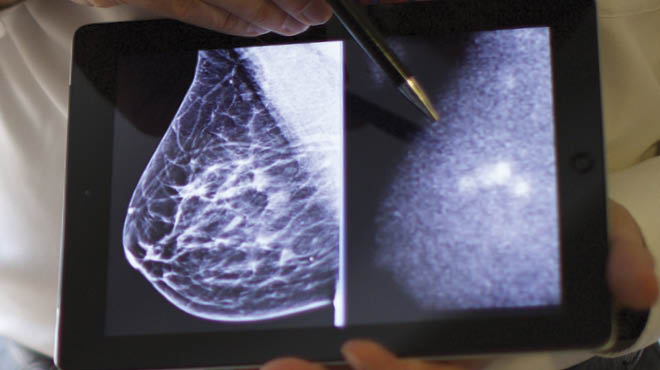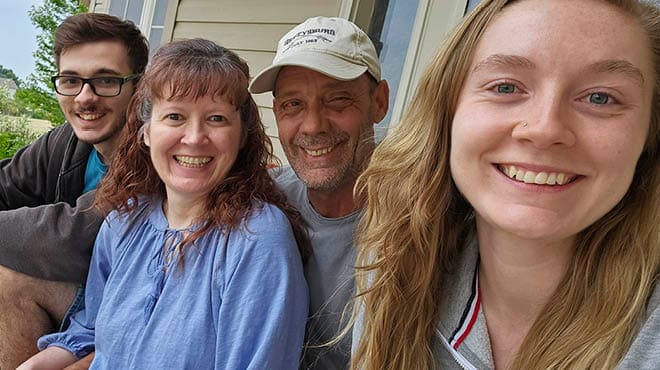Oncology (Cancer)
- Overview
- Prevention/Screening
- Cancer Diagnosis
- Common Cancers
- Breast Cancer Care
- Cancer Treatments
- Radiation Oncology
- Andreas Cancer Center
- Coping With Cancer
- Program Accreditation
- Cancer Resources
Recent Blogs
-

-

-

-

-
 Speaking of HealthNourishing your health: Diet and nutrition factors for cancer preventionAugust 02, 2024
Speaking of HealthNourishing your health: Diet and nutrition factors for cancer preventionAugust 02, 2024 -
 Patient StoriesHow a different mammogram experience led to lifesaving cancer diagnosisJune 28, 2024
Patient StoriesHow a different mammogram experience led to lifesaving cancer diagnosisJune 28, 2024
Cancer Treatments
Our goal is to find the best care for you, whether your needs are straightforward or complex. In Mankato, Minnesota, we partner with the top-ranked Mayo Clinic Comprehensive Cancer Center.
We specialize in providing numerous advanced cancer treatment programs for many different types of cancer, to deliver the most precise, effective therapies available.
Medical oncology
Medical oncology is a method of using medications. Chemotherapy is given intravenously, or injected into the vein, or by mouth. Administered in specific cycles, medical oncology allows time for your body to rebuild normal cells that may be damaged by chemotherapy.
Chemotherapy treatment is overseen by a medical oncologist specializing in the treatment of cancer with chemotherapy. This physician works with you to develop a care plan that is best suited for your situation.
As chemotherapy wipes out cancer cells, it also can destroy fast-growing healthy cells which may cause side effects. Read about the possible side effects of chemotherapy.
Radiation oncology
Radiation oncology involves treating cancer with radiation. Radiation therapy uses carefully targeted and regulated doses of high-energy radiation to kill cancer cells. Radiation causes some cancer cells to die immediately after treatment, but most die because the radiation damages the chromosomes and DNA so that the cells can no longer divide and the tumor can't grow.
Specific radiation treatments include:
- Dedicated CT simulator
Using this 3D technology, staff position you on the CT scanner, perform a scan and reconstruct that scan to develop a personalized treatment plan. - Image-guided radiation therapy (IGRT)
IGRT planning begins by using imaging scans to help direct radiation beams to cancerous tumors with precision and accuracy. Each following treatment day, the radiation team images the target to ensure your exact positioning, radiation beams and target, which optimizes daily treatment and minimizes radiation doses to normal tissue. - 3D conformal radiation therapy (3D CRT)
In this type of treatment, a computer is used to create a 3D picture of the tumor to conform or match the radiation beam to the shape of the tumor. Multiple radiation beams are aimed at the tumor from different angles, sparing normal tissue as much as possible. - Intensity modulated radiation therapy (IMRT)
IMRT is an advanced type of 3D radiation that adapts to the shape of a tumor. With IMRT, not only are beams aimed at the tumor from several directions, the intensity or strength of the beams can be adjusted to minimize the amount of radiation that reaches normal tissue. - RapidArc
A major advance in radiation therapy, Rapid Arc uses an improved type of radiation dosing that ensures even greater precision in the delivery of radiation beams to further spare the normal, healthy tissue. Treatment times are two to eight times faster using this method, meaning each visit is much more efficient. - Stereotactic radiosurgery or radiotherapy
Stereotactic radiosurgery, or radiotherapy, uses precisely focused radiation beams to treat specific tumors and other abnormal growths in the brain, spine, liver, lung or other sites. Computers create 3-D images to guide doctors in delivering radiation to the target area with minimal exposure to surrounding healthy tissue. This type of treatment utilizes higher daily doses but a lower number of treatments.
Surgery
In certain cases, the form of cancer you have may require one or more surgical operations. Consult your health care team to learn more about surgery.
Infusion therapy
Infusion therapy refers to delivering medication and nutrition directly into the veins, also known as intravenous or IV administration.
The infusion center is a warm, aesthetic environment that offers the following amenities:
- Recliner chairs with massage and/or heat features
- Outdoor view to flower gardens
- Access to private cable TV during the entire infusion
- Hand massages available once a week
- Warm blankets upon request
- Snacks and beverages
- Nutrition area with a microwave
- Local newspaper
- Education materials
- Volunteers are available at all times to meet your needs
Clinical trials
Clinical trials, also known as research studies, evaluate new cancer treatments. The goal of this research is to provide the latest, most effective care options for you. Mayo Clinic Health System is part of Mayo Clinic, which means our providers have access to this world-renowned research, ensuring you're cared for in a way that's driven by your exact needs.
Learn more about cancer research at Mayo Clinic. Talk to your Oncology team if you have questions or concerns regarding clinical trials.
Alternative treatments
Many people with cancer are interested in trying anything that may help them, including complementary and alternative cancer treatments. To help you sort out the good from the bad, read about the 10 alternative cancer treatments to consider that are generally safe.